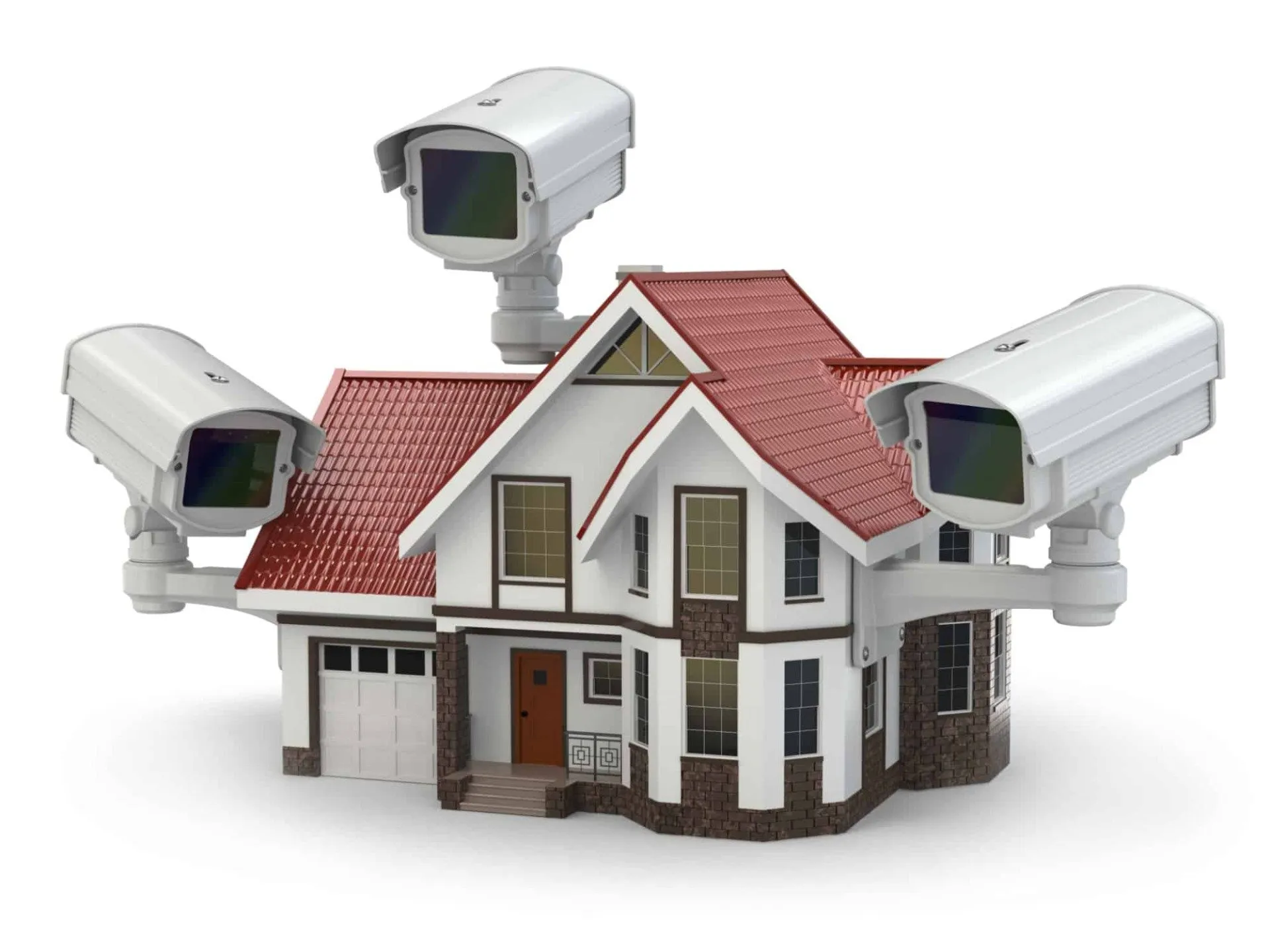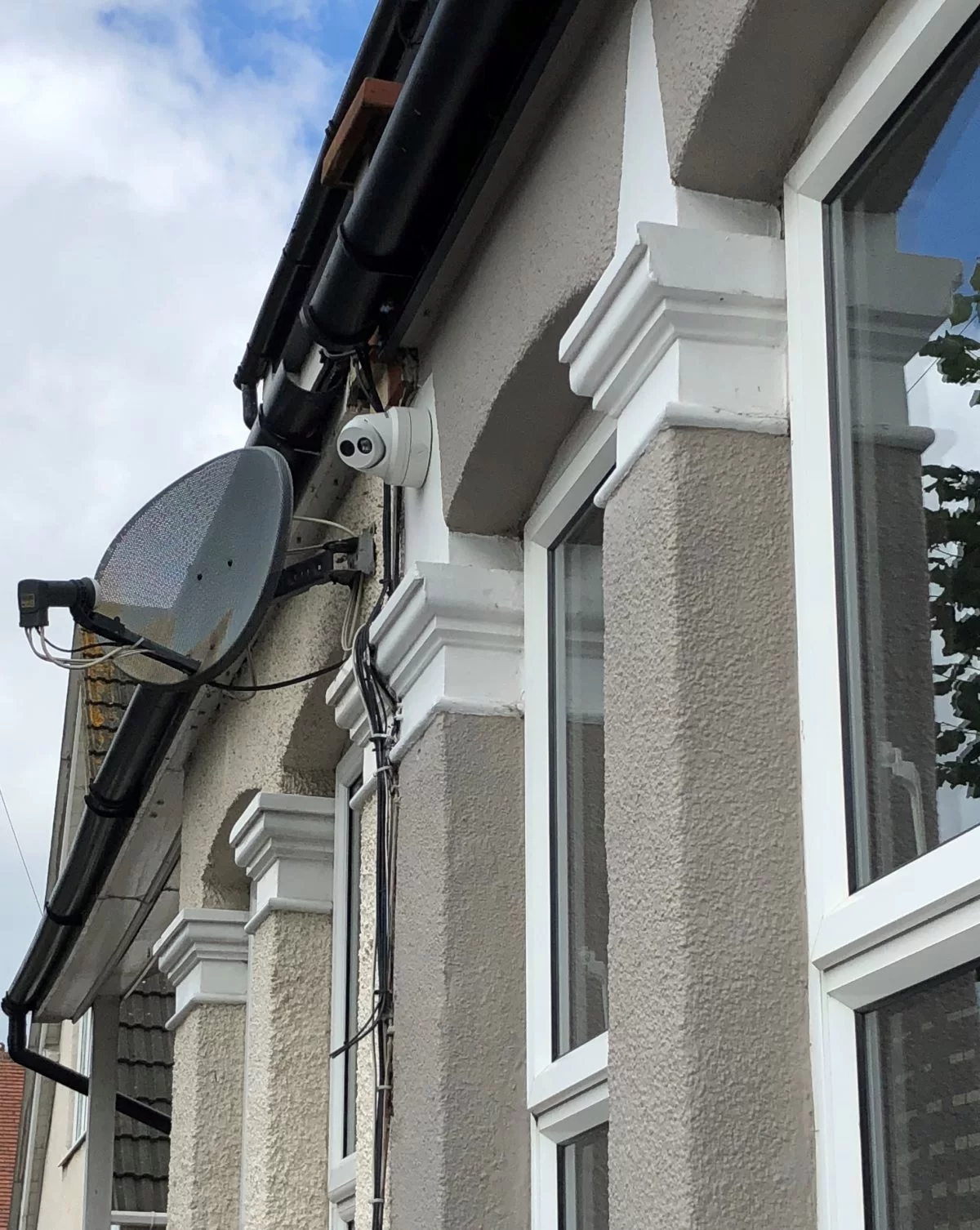Are you planning to install CCTV? 6 Things to Consider Before You Install It
Think Seriously Before You Buy, Rent or Install a CCTV System

Everyone knows how important it is today to protect yourself from criminals who want to steal from you or inflict damage to your property, and with statistics like 55,800 burglaries in London and 6,941 in Essex in 2021, installing a CCTV security system seems like the perfect solution. However, it can also look like a minefield to anyone not well versed in the industry. Here we’ll give you some basic facts that you should consider before choosing the right CCTV installation for your home or business security.
Where to put CCTV Cameras?
There’s a fair bit you’ll need to consider when it comes to where to put your cameras and this depends on the area that you want to protect with CCTV installation. For instance, do you want to cover the inside or outside of your property or perhaps you need both. Most cameras these days can handle both inside and outside use, however if you are putting cameras outside it is worth checking that they have suitable weather protection especially if they are likely to be prone to extreme weather conditions regularly.
Another point to think about is the size of the area that you want to cover. A small area could be covered with a single static camera or two but for a large area you may be better served installing a moving camera such as a pan-tilt-zoom (PTZ) version that can cover a larger area as well as zooming in closer if needs be.
You should also consider whether you want the actual CCTV installation to act as a deterrent to a would be burglar. This can be quite a successful way of protecting your property as burglars tend to be very camera shy. In which case you’ll need to position the camera so that it is easily visible but out of reach so that it is not easy to disable.
Which type of installation is right for you?
Once you have determined the size of the area you want the CCTV system to cover you should turn your attention to deciding what type of installation you require and there are two options for you to consider on this point.
The main two types of system that you can choose from is analogue CCTV or IP CCTV installations, both do the same job; both do it well and these days they are more comparable in price.
Analogue CCTV is the more traditional option and has been around a long time. It works by storing your recordings on a digital video recorder (DVR) locally.
IP CCTV, or internet protocol to give it its full title, CCTV is the new kid on the block and works like a computer. As you’d expect from advanced technology this can give you better functionality and delivers much higher quality images. This works by storing your recording on a network video recorder (NVR).
The main difference between the two is that analogue CCTV is only stored and viewed locally whereas images from IP CCTV can be stored and viewed remotely, allowing you to keep an eye on the security of your premises even when you are away.
One last thought on the type of installation that you should choose is whether you need a simple surveillance system or whether you would benefit from additional functionality including motion sensors or analytics such as facial, movement, ANPR (automatic number plate recognition) etc. As with any type of technology there are constant leaps of developments so it is well worth talking to the specialists if you think that your business would benefit from some of the functionality that installing an analytic CCTV can offer.
What type of camera to choose and why?
Once you’ve decided the best surveillance system to install in your property, the next choice you need to make is what functionality you require from the actual cameras. Here again you have a range of options to choose from depending on what your objective is.
The first choice you need to make with the actual camera is the shape. There are two main options here, bullet or dome and both have their uses depending on your needs.
Dome cameras are more discreet and can cover a wide area. They are also less prone to vandalism and, because of the dome shape, more difficult for anyone to see exactly where they are directed.
Bullet cameras, on the other hand, tend to stick out like a sore thumb, making them a great deterrent to would be thieves and vandals who don’t want to be caught on camera. The downside to this though is that they are more easily disabled or avoided which means that you’d need to install several to ensure that you adequately covered all areas.
Other options for you to consider when choosing which cameras to install is do you require night vision, motion sensors or pan, tilt, zoom functions.
You’ll also need to think about your image quality needs. For simple surveillance situations you won’t need a high quality resolution camera however if you need numberplate recognition or facial recognition from your CCTV installation then you will need to invest to obtain higher quality image capture.
Privacy laws
With the emergence of the data protection act comes news rules and regulations regarding the use of CCTV that you need to be aware of. Obviously, these rules mainly apply to commercial use of CCTV, however there are some points that you need to be aware of if you are installing CCTV to protect your home. Here’s a link to the Government Guidance that’ll you’ll need to get your head around, don’t worry it is not too complicated and will save you getting on the wrong side of your neighbours.
How secure are CCTV Systems?
It is an ironic fact that a system that we use to help keep us protected from criminals can in fact be a target itself and needs to be protected.
The most obvious vulnerability is the camera itself. Criminals will take advantage of an easy to reach camera to cover it or damage it before going about their illegal activities, so it is a good idea to position any cameras out of their reach.
Another threat to the security of your CCTV is hacking so you need to make sure that you prevent this where possible.
Make sure you put your cameras in the right places
When it comes to the location of your cameras there are a few things to consider.
First, you need to install each camera so that they cover the area that you want to protect. This may mean that you need several cameras so that you cover all vulnerable areas.
You should also consider any obstructions that might prevent a camera from seeing the whole area or places where criminals would be obscured from view.
Protection from weather is another consideration when installing your CCTV cameras. There’s nothing worse than trying to look at an image that has been recorded through rain drops. And it’s not just rain that you need to consider, the sun’s glare can render an image useless.
If you are using cameras to act as a visual deterrent, then you need to ensure that they are in an obvious position to ward off the camera shy.
As mentioned previously making sure your camera are installed so that they are tamper proof is a good idea too.
This is not an exclusive list and everyone will have unique needs but following these 6 points will start you on the right road to the perfect CCTV installation for you.
Recent Posts
4 Megapixel IP CCTV install – Southend, Essex
4 Megapixel IP CCTV install – Southend, Essex 4 Megapixel...
Atlas Road – Bus Garage – IP CCTV Installation
Atlas Road – Bus Garage – IP CCTV Installation Atlas...
Choosing The Right Security Company
Choosing the right company for your security installation is vital...



